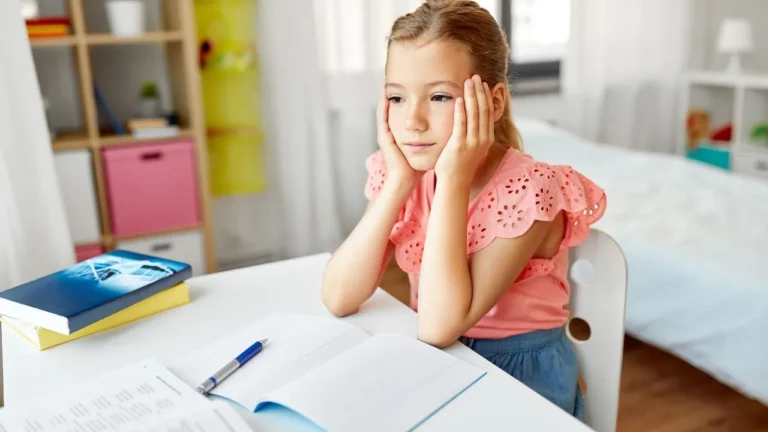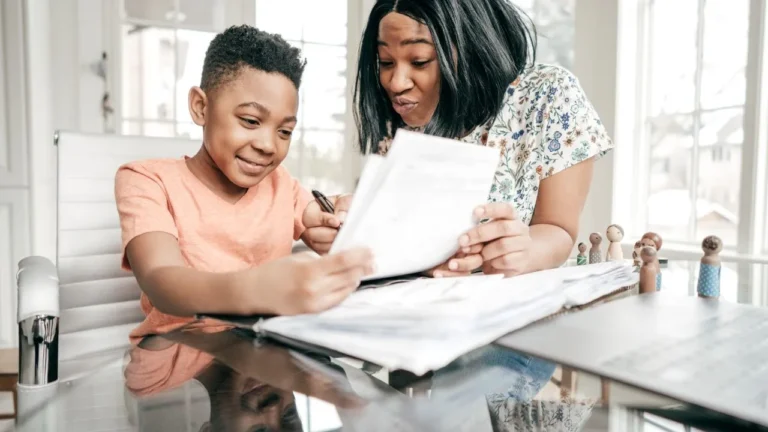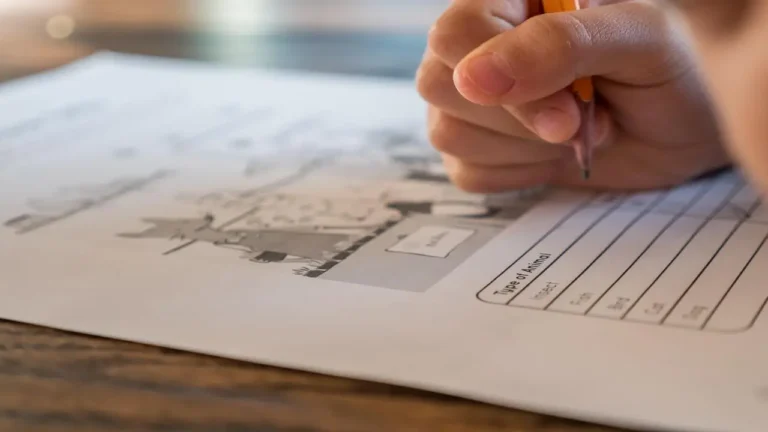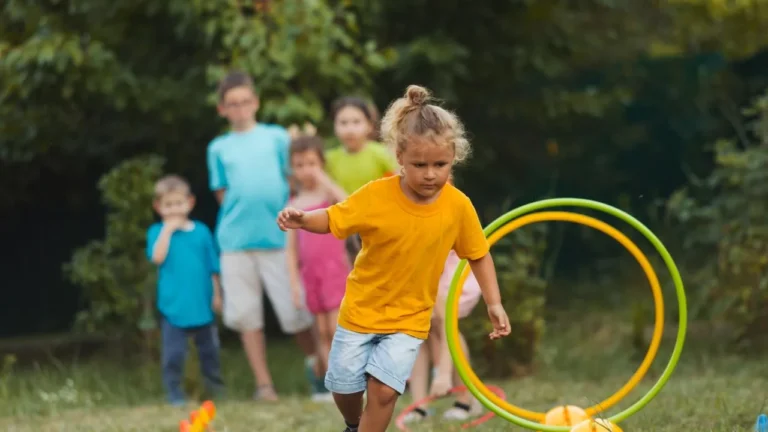Expert Tips: Breaking the Boredom in School
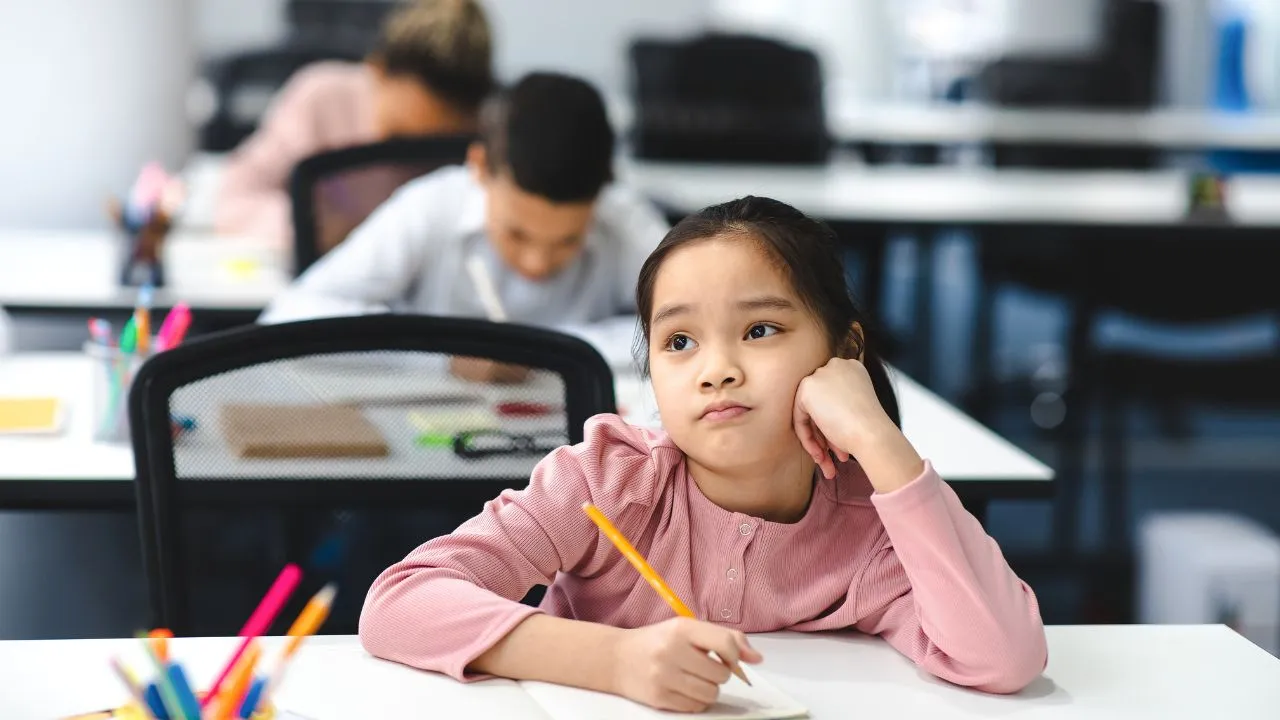
Boredom is a common experience for children in school, and it can have a significant impact on their academic performance and overall well-being. One reason why children experience boredom is under-stimulation and lack of challenge.
Students with learning differences or different learning styles may be under-stimulated by the material presented in class, leading to disengagement and boredom. Likewise, gifted students may not receive enough challenges in their classes, leaving them uninterested and bored.
Another factor contributing to boredom is the absence of perceivable rewards and motivations. Children who do not see a clear connection between their efforts in school and tangible outcomes may fail to see the value in putting forth the effort, leading to apathy and disengagement.
Social skills deficits can also contribute to feelings of isolation and boredom at school. Mental health concerns can also influence school engagement.
Children who are struggling with anxiety or post-traumatic stress disorder (PTSD) may find it challenging to focus on class material or participate actively in classroom discussions. This could lead them to become easily bored or distracted during class time.

Understanding Why Children Experience Boredom in School and Strategies to Address It
To address these issues, educators should consider using visual aids, tactile stimulation materials, individualized education plans (IEPs), 504 plans along other innovative teaching strategies that help meet the specific needs of each student.
Students who feel connected to their peers and educators are more likely to be engaged in learning activities; thus fostering positive relationships within classrooms is essential for maintaining engagement levels while minimizing boredom levels among students.
Understanding why kids get bored at school can help teachers come up with good ideas to make school more interesting and fun. When kids are not challenged enough or there aren’t enough rewards for doing well, they can lose interest. It’s also important to think about their feelings and work together with their parents, teachers, and maybe even counselors.
If we try new things like making schoolwork just right for each child, we can make school a place where kids want to learn. They’ll want to do well, and they won’t feel bored very often.
The Issue of Under-Stimulation and Lack of Challenge
Students may feel bored at school when they are not being challenged intellectually. Some students experience a lack of incentives to participate in class discussions or complete assignments as they do not see the relevance of doing so.
When students feel that their work is not challenging enough, they may disengage from learning altogether. As a result, teachers should provide hands-on experience and visual aids to engage them better.
Gifted students who are under-challenged may be more likely to experience boredom in the classroom as compared to other students. These individuals may become unmotivated when they find themselves repeatedly working on tasks that are below their capabilities.
Such a situation can lead these students to disengage from academic activities and lose interest in school altogether. Teachers can find innovative ways to challenge gifted students by providing them with advanced coursework or opportunities for individualized learning plans (IEP).
These actions can help prevent boredom for these students, which is crucial for their engagement and learning. Educators need to understand how under-stimulation and lack of challenge contribute significantly to student boredom.
Teachers need to create an environment that challenges each student appropriately while encouraging engagement and learning. This approach includes creating an active classroom with hands-on experiences, visual aids, and individualized education plans where required.

The Absence of Perceivable Rewards and Motivations
For many students, a major factor contributing to boredom in school is the absence of perceivable rewards and motivations. Students may not see the value or relevance of what they are learning, which can lead to a lack of engagement and interest in their studies.
The resulting boredom can manifest itself in various ways, such as school avoidance, school refusal behaviors, or simply tuning out during class. One issue that contributes to the absence of perceivable rewards is insufficient challenge.
If students are not challenged enough by the material being presented or if they feel that it is too easy for them, they may become bored and disengaged. This can be particularly problematic for under-challenged students who have already mastered the material being taught.
Another issue is a lack of incentives. Students are much more likely to engage with material if there is some kind of reward or incentive attached to it.
Teachers can use a variety of strategies here – for example, offering praise or extra credit for good performance on tests or assignments – to help motivate students. Visual aids can also be effective at providing incentives and keeping students engaged with the material being presented.
For example, teachers might use interactive computer programs that allow students to explore concepts visually and interactively rather than simply reading about them in a textbook. This approach can be particularly helpful for students who have different learning styles and need hands-on experience to fully understand new concepts.
To deal with the problem where kids can’t see the rewards and reasons for learning, both teachers and parents need to think carefully.
Giving kids interesting things to learn that are just hard enough can keep them from getting bored. Also, giving some rewards can help. This helps students feel more confident when taking tests, which is very useful for all the years they will be in school.
Mental Health Aspects That May Influence School Engagement
Mental health concerns can play a significant role in a child’s ability to engage and participate in school. Childhood depression, anxiety, post-traumatic stress disorder (PTSD), and attention deficit hyperactivity disorder (ADHD) are just some of the common mental health conditions that may impact school engagement.
These conditions can manifest in various ways, affecting a child’s mood, behavior, and cognitive abilities. For example, an anxious child may struggle to focus on classroom tasks due to excessive worry or fear.
Children with ADHD may have difficulty sitting still and paying attention for long periods, making traditional classroom settings challenging. Moreover, children who have experienced trauma may display school refusal behaviors or become easily triggered by certain stimuli in the classroom.
In some cases, mental health concerns may also lead to insomnia or other sleep disturbances that further exacerbate difficulties with engagement at school. Educators and parents need to recognize symptoms of potential mental health issues so that appropriate support can be provided for the child.
Addressing these challenges effectively requires individualized attention through an Individualized Education Plan (IEP) or 504 plan to ensure the student has access to accommodations tailored toward their needs.
Additionally, hands-on experience and visual aids provide tactile stimulation that can help students stay focused for longer periods while engaging them actively with material too challenging when presented only through lectures.
Moreover, it is essential to recognize different learning styles as well as learning differences such as dyslexia or audio processing issues which affect how students take in information.
This comprehensive approach will empower students who feel under-challenged or unmotivated by providing them with personalized support geared towards their specific challenges and strengths so they are less likely to miss connection opportunities within the educational environment.
The Importance of Establishing Connections with Peers and Educators
Establishing connections with peers and educators is a crucial aspect of preventing boredom in school. A lack of social connection can lead to disengagement and negative feelings toward learning. When students feel connected to their teachers and peers, they are more motivated to participate in class discussions and activities, attend school regularly, and engage meaningfully with the material.
Students who struggle with social skills may find it difficult to connect with others in a classroom setting. Educators need to create opportunities for students to interact with one another, such as group projects or collaborative learning activities.
These types of activities not only foster social connection but also promote engagement and learning. Parent-teacher collaboration is another critical component of establishing connections in school.
When parents are involved in their child’s education, they can provide support at home that reinforces what is being taught in the classroom. Additionally, parents can communicate any concerns or issues that may be affecting their child’s engagement at school, allowing teachers to better understand the individual needs of each student.
Establishing connections between students and educators is essential for preventing boredom in school. By creating opportunities for social interaction, fostering parent-teacher collaboration, and promoting engagement through hands-on experiences tailored to individual learning styles, students are more likely to feel motivated and invested in their education.
The Need for Enhancing and Strengthening Academic Skills
Students who experience boredom at school may also struggle with feeling unfulfilled in their academic pursuits, particularly if they lack the necessary skills to fully engage with the material. This can lead to feelings of apathy and school avoidance, as well as heightened anxiety and stress.
Students who are unable to understand or complete challenging assignments may become discouraged, while those who feel unmotivated may simply not see the value in putting forth effort. One approach to addressing these issues is providing hands-on experience for students.
By introducing tactile stimulation and visual aids, teachers can help students better understand complex concepts and improve their test-taking skills. Additionally, educators can work with students individually or in groups to identify different learning styles, allowing them to tailor instruction accordingly.
It’s important to note that some students may struggle due to a lack of foundational skills rather than a simple lack of interest or motivation. In these cases, teachers should provide extra support through targeted interventions such as a 504 plan or additional tutoring so that students can build their social skills along with their academic acumen.
By helping students develop essential academic skills and fostering engagement and learning in the classroom environment, educators can help prevent school refusal behaviors from developing over time.
Ultimately, by embracing innovative approaches to teaching and encouraging collaboration between teachers and families alike, schools can ensure that all children have access to quality education that meets their individual needs.
Effective Role of Parents in Addressing Student Boredom:
Parents play a pivotal role in managing student boredom, ensuring their child has the necessary support, resources, and motivation to engage actively in their studies.
Below are some strategies parents can employ:
Parents should exhibit empathy towards their children facing difficulties and assist them in finding solutions. By working in partnership with educators and nurturing a robust support system, parents can help their children tackle boredom and engage more enthusiastically in their studies.
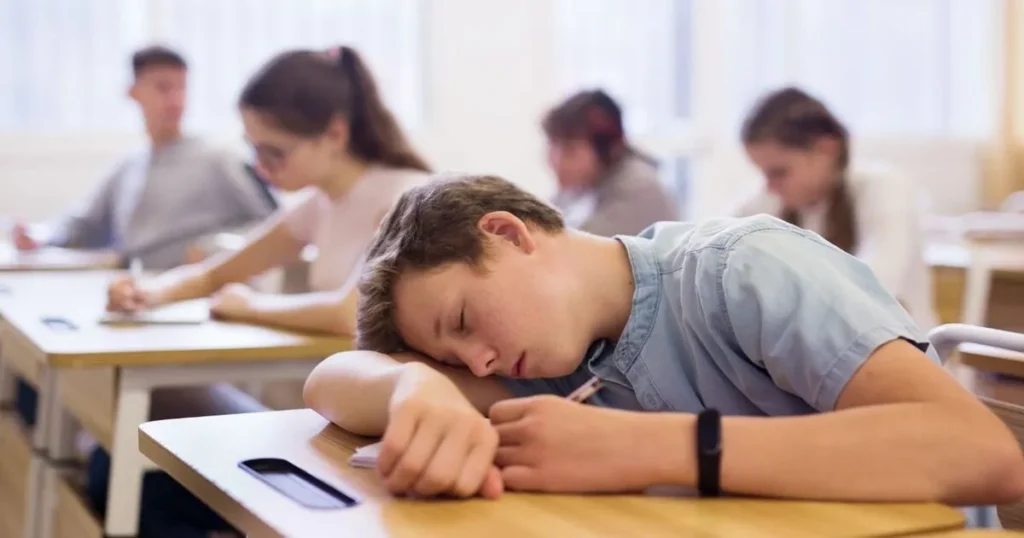
Essential Questions for Parents to Consider
As a parent, it can be challenging to watch your child struggle with boredom and disengagement in school. You may ask yourself questions such as: What can I do to help my child become more interested in their education?
How can I encourage them to put forth effort and motivation toward their studies? Are there any underlying causes of apathy or disinterest that need to be addressed?
Firstly, parents need to consider their child’s learning styles and needs. Every child learns differently, and some may require hands-on experience or visual aids to stay engaged.
If your child has a learning difference or deficit, they may need an individualized education plan (IEP) tailored specifically to their needs. Identifying these factors early on can help parents work with teachers and educators to develop strategies that promote engagement and learning.
Another critical aspect for parents to consider is the level of challenge that their child is facing in school. If the material is too easy or not challenging enough, students are more likely to become bored and disinterested.
On the other hand, if the challenge level is too high, students may feel overwhelmed or discouraged from trying altogether. Parents should work with teachers and educators to find a balance that provides a sufficient challenge while not overwhelming students.
Parents need to address any mental health concerns that may be impacting their child’s engagement in school. Anxiety, depression, or other mental health conditions can significantly impact motivation levels and cause school avoidance or refusal behaviors.
Encouraging open communication with your child about their feelings towards school can help identify any underlying issues that need addressing.
By considering these essential questions as a parent of a bored student at school – identifying individual learning styles/needs; ensuring appropriate challenge levels; and addressing mental health concerns – you will be better equipped to work with educators effectively in promoting engagement and enhancing academic performance amongst your children!
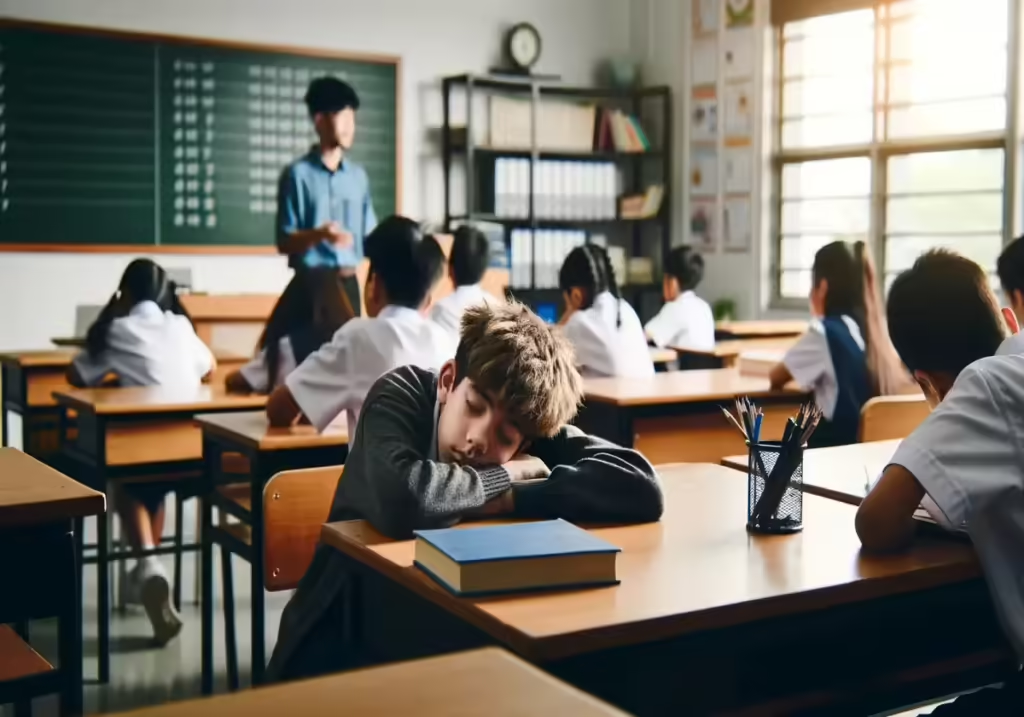
Encouraging Collaboration between the Child and Their Teacher
Collaboration between teachers and parents is essential to ensuring that students are engaged, motivated, and challenged in school. When children struggle with boredom at school, parents need to work with their child’s teacher to identify strategies that will help motivate their child.
One of the best ways to encourage collaboration between children and their teachers is through open communication. Parents should take the time to talk with their child’s teacher about any underlying issues that may be affecting their child’s motivation or engagement in the classroom.
For example, some under-challenged students may become apathetic toward learning because they feel like they are not being challenged enough. In this case, parents can work with teachers to develop a plan for providing more challenging material or opportunities for hands-on experiences.
Similarly, students who struggle with test-taking skills or learning deficits may benefit from visual aids or other tools that can help them better understand the material. Another important aspect of collaboration between parents and teachers is identifying any mental health concerns that may be affecting a student’s engagement in school.
Childhood depression, anxiety, and other mental health conditions can often manifest as school avoidance or lack of motivation. By working together, parents and teachers can identify these issues early on and develop strategies for addressing them.
Ultimately, encouraging collaboration between children and their teachers requires a willingness to work together towards a common goal – helping students succeed in school.
Through open communication, identifying underlying causes of apathy or lack of engagement, and embracing innovative approaches to teaching and learning, parents and teachers can help create an environment where children feel motivated to learn new skills, engage socially with peers in creative projects while finding material neither too easy nor too challenging.
Embracing Innovative and Creative Approaches
Innovative and creative approaches can be highly effective in preventing boredom in the classroom. The traditional methods used to deliver lectures and teach lessons may not always engage students, especially those who have learning differences or material that is too easy for them.
Many schools have adopted a “hands-on” approach that involves more tactile stimulation, allowing students to engage with the material more actively and better understand it. Creating an engaging classroom environment requires educators to consider the different learning styles of their students.
Some students may be visual learners who benefit from visual aids, while others may be kinesthetic learners who learn best through movement and hands-on activities. Incorporating these different learning styles into lessons can help keep all students engaged and prevent boredom.
Gifted students often need more challenging material than their peers to stay engaged in school. Educators can create individualized education plans (IEPs) or 504 plans that provide appropriate challenges for these students.
By providing appropriate challenges for gifted students, they are less likely to become bored with school. Creative approaches can also encourage unmotivated or anxious students to become more engaged in the classroom.
Some schools offer therapy dogs as a way to help calm anxious or stressed-out children, making it easier for them to focus on the lesson at hand. Other schools use technology-based activities as a way of providing incentives for completing tasks or projects.
Using innovative and creative approaches in the classroom can help prevent boredom among all types of learners. By considering different learning styles, creating individualized education plans, offering tactile stimulation, and providing incentives for completing tasks or projects, educators can create an engaging environment where all students feel motivated and excited about their education.
Final Insights From TKS
Boredom at school is a common experience for many children and can have negative effects on their academic performance, mental health, and overall well-being.
Educators and parents must recognize the underlying causes of boredom and implement effective strategies to address them. Unmotivated students may benefit from individualized education plans (IEPs) that cater to their learning styles and provide necessary challenges.
Gifted students may require more challenging material or opportunities for independent study. Visual aids and tactile stimulation can improve engagement with material too easy or too challenging.
Providing incentives and rewards can also motivate children to participate in class activities. However, it’s important not to focus exclusively on grades or test scores as incentives; instead, teachers should help students find intrinsic motivation by linking the curriculum to their interests and passions.
Parents should be involved in addressing boredom by advocating for their child’s needs, collaborating with teachers on creative solutions, and fostering connections with peers outside of school. Childhood depression or post-traumatic stress disorder (PTSD) may exacerbate feelings of boredom; parents need to monitor any school refusal behaviors or signs of learning deficits.
Addressing boredom at school requires a multi-faceted approach that considers each child’s unique situation and needs. By working together as educators, parents, and advocates for our children’s education, we can help ensure that all students feel challenged, engaged, and excited about learning.




